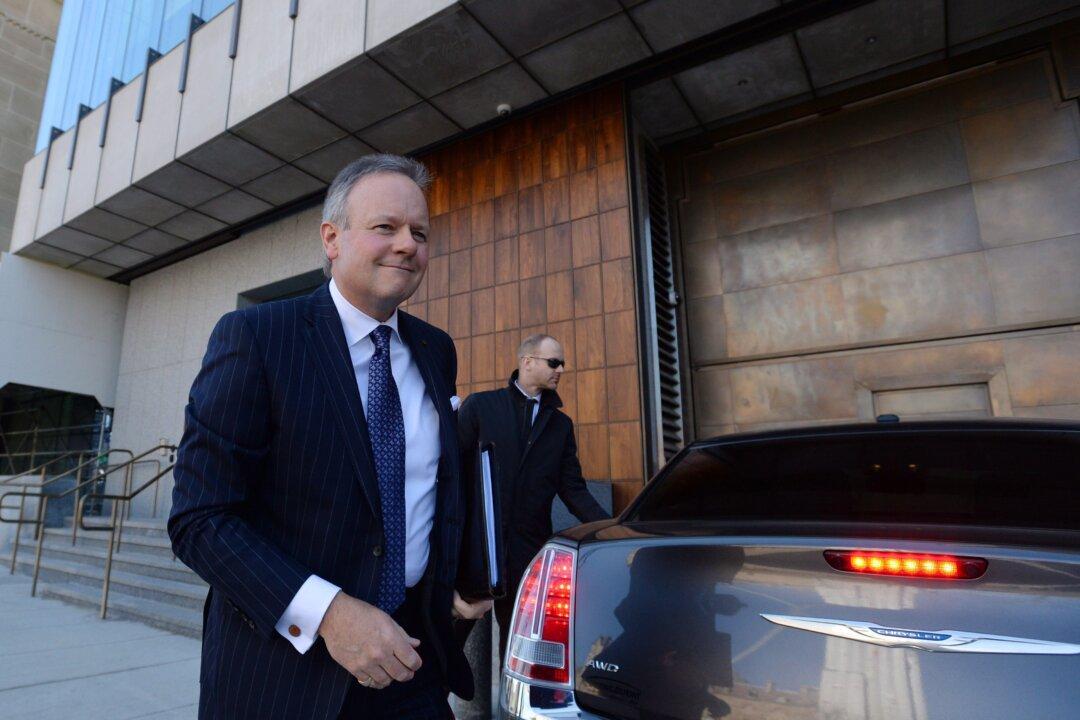OTTAWA—Fiscal spending in Budget 2016 will outweigh a number of economic headwinds and boost growth, according to the Bank of Canada. The Canadian central bank left its key policy rate at 0.50 percent, as widely expected on April 13.
Governor Stephen Poloz views the government’s impending $29.4 billion deficit as “a very small change” in terms of the Canada’s existing debt.
“So far the reaction has been just fine. People take some reassurance that we’ve got a better mix of policies,” Poloz said. The credit rating agencies haven’t cringed at the spending and neither have financial markets.
In its interest rate decision, the BoC said the fiscal measures “will have a notable positive impact on GDP,” which is projected to be 0.5 and 0.6 percent in 2016 and 2017 respectively.
Fiscal expansion will be discussed at the G20 finance ministers and central bank governors meetings in Washington from April 14-16. The International Monetary Fund (IMF) and Organisation for Economic Co-operation and Development (OECD) have been advocating its use, if appropriate for a given country’s finances.
Canada has shown leadership in this regard with the federal budget as an example of a policy response to weak and uneven growth. Canada is in the strongest fiscal position among G7 members, having the lowest net debt-to-GDP ratio, to undertake fiscal spending.





